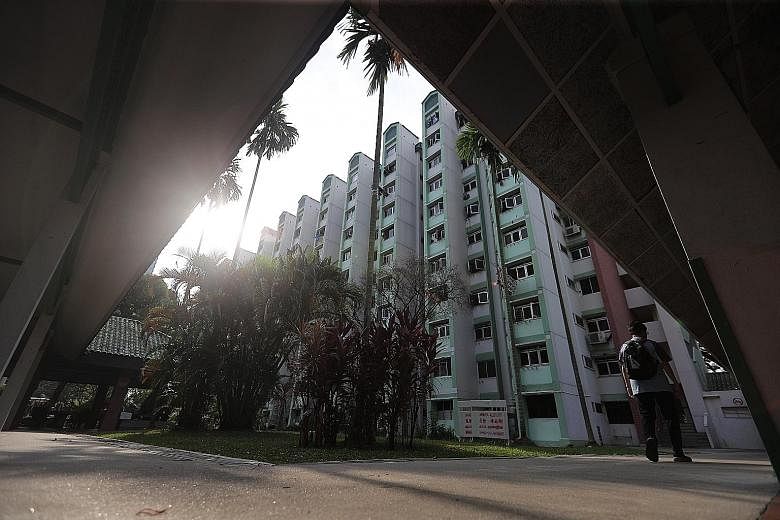The Workers' Party has unveiled a working paper on Singapore's housing policy, which outlines recommendations such as a universal lease buy-back scheme and calls for the current Selective En bloc Redevelopment Scheme (Sers) to be expanded.
Through these proposals, Singapore's main opposition party says it hopes to spark a discussion on how to better preserve the value of Housing Board (HDB) flats that could lose value once their leases are up - an issue that has gained attention in recent years.
Titled Counting Down To Zero: Are There Alternatives To Vers?, the 60-page paper by the party's policy team, drafted after consulting real estate experts, industry professionals and members of the public, was published on the party's website last Friday.
Vers refers to the Voluntary Early Redevelopment Scheme, in which owners of flats that are 70 years and older can vote for the Government to buy back their homes before their leases run out. It was announced by Prime Minister Lee Hsien Loong last year.
Among the key issues the paper hopes to address is the "inevitable tendency for resale prices to decline" as the flat approaches the end of the 99-year lease, which it described as a "systemic issue".
It said other shortcomings in the Government's housing policy are how HDB flat owners cannot initiate collective sales, how the prices of new flats have risen against median incomes, and how having to service a large mortgage loan could mean a lack of retirement funds for some Singaporeans.
The paper advocated four principles to guide a reform of housing policy, such as how HDB flats should be "primarily an affordable home, as compared with private property", and how the "resale value of HDB flats should act as a form of wealth protection for retirement and legacies".
The other principles are: having more housing options beyond owning HDB flats, and having any wealth appreciation to be in line with economic growth and be inter-generationally fair.
About 80 per cent of Singapore households live in HDB flats.
The paper said that it was not clear to what extent two schemes introduced last year - Home Improvement Programme II and Vers - will mitigate the long-term tendency of HDB resale prices to fall as units age.
It referred to uncertainties with Vers, such as how it was "far from clear" that the majority of flats will be eligible once they turn 70, and how compensation will be funded if many eligible blocks opt for it at the same time.
The paper proposed a Universal Sale and Lease Back scheme, which would be extended to all HDB property types and all HDB lessees after the minimum occupancy period and with at least 80 per cent of the loan repaid. Those eligible can opt for it at any time after their unit has 30 years of lease tenure left.
"The benefit of a Universal Sale and Lease Back scheme is that it ensures liquidity to HDB flat owners needing to sell their property, with the HDB serving as the buyer of last resort," said the paper.
"More importantly, the existence of a universal buy-back scheme serves as a back-stop to mitigate the inevitable price drop for HDB resale flats."
To speed up urban renewal, the paper proposes an alternative scheme to Sers, called Sers Plus. In this scheme, the Government need not secure a proxy site before the launch of Sers. Affected residents would be given priority and guaranteed placement of units under existing Build-To-Order (BTO) and Sale of Balance flat exercises, it said.
Reiterating a point made in the party's General Elections 2015 Manifesto, it said the party believes pegging prices of BTO flats to median incomes will help to control the extent to which BTO price growth can significantly outstrip median wage growth.
Coupled with this, the paper also called for transparency in the pricing of land sales to HDB. It noted that past parliamentary replies suggest that land pricing is undertaken by the Chief Valuer based on multiple factors.


